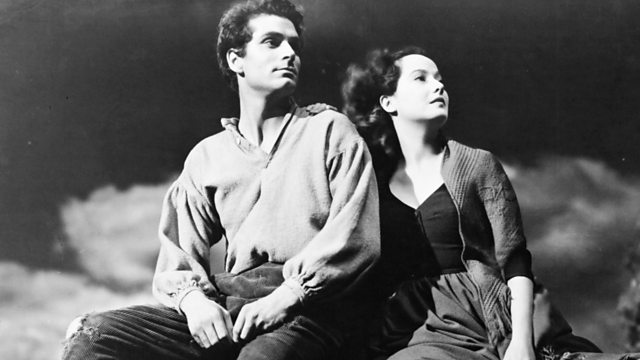Wuthering Heights
Melvyn Bragg and guests discuss Emily Bronte's story of Heathcliff and Cathy, of love, hatred, revenge and self-destruction across two generations in a remote moorland home.
In a programme first broadcast in 2017, Melvyn Bragg and guests discuss Emily Bronte (1818-1848) and her only novel, published in 1847 under the name 'Ellis Bell' just a year before her death. It is the story of Heathcliff, a foundling from Liverpool brought up in the Earnshaw family at the remote Wuthering Heights, high on the moors, who becomes close to the young Cathy Earnshaw but hears her say she can never marry him. He disappears and she marries his rival, Edgar Linton, of Thrushcross Grange even though she feels inextricably linked with Heathcliff, exclaiming to her maid 'I am Heathcliff!' On his return, Heathcliff steadily works through his revenge on all who he believes wronged him, and their relations. When Cathy dies, Heathcliff longs to be united with her in the grave. The raw passions and cruelty of the story unsettled Emily's sister Charlotte Bronte, whose novel Jane Eyre had been published shortly before, and who took pains to explain its roughness, jealousy and violence when introducing it to early readers. Over time, with its energy, imagination and scope, Wuthering Heights became celebrated as one of the great novels in English.
The image above is of Laurence Olivier as Heathcliff and Merle Oberon as Cathy on the set of the Samuel Goldwyn Company movie 'Wuthering Heights', circa 1939.
With
Karen O'Brien
Professor of English Literature at the University of Oxford
John Bowen
Professor of Nineteenth Century Literature at the University of York
and
Alexandra Lewis
Lecturer in English Literature at the University of Aberdeen
Producer: Simon Tillotson.
Last on
More episodes
Previous
![]()
Play our quiz to see if you remember the book as well as you remember the song.
LINKS AND FURTHER READING
��
READING LIST:
Christine Alexander and Margaret Smith, Oxford Companion to the Brontes (Oxford University Press, 2006)
Juliet Barker, The Brontes (Weidenfeld��& Nicolson, 1994)
Ryan Barnett and Serena Trowbridge (eds.), Acts of Memory: The Victorians and Beyond (Cambridge Scholars Publishing, 2010), especially ‘Memory Possessed: Trauma and Pathologies of Remembrance in Emily Brontë’s Wuthering Heights’ by Alexandra Lewis
Sandra Gilbert and Susan Gubar, The Madwoman in the Attic: The Woman Writer and the Nineteenth-Century Literary Imagination (Yale University Press, 2000)
Heather Glen, The Cambridge Companion to the Brontës (Cambridge University Press, 2002)
Frank Kermode, The Classic: Literary Images of Permanence and Change (Harvard University Press, 1975)
Lucasta Miller, The Bronte Myth (Vintage, 2002)
Adrian Poole (ed.), Cambridge Companion to English Novelists (Cambridge University Press, 2009), especially ‘Emily Bronte’ by Heather Glen
Marianne Thormählen (ed.), The Brontës in Context (Cambridge University Press, 2012)
��
Credits
| Role | Contributor |
|---|---|
| Presenter | Melvyn Bragg |
| Interviewed Guest | Karen O'Brien |
| Interviewed Guest | John Bowen |
| Interviewed Guest | Alexandra Lewis |
| Producer | Simon Tillotson |
Broadcasts
- Thu 28 Sep 2017 09:00�鶹�� Radio 4
- Thu 28 Sep 2017 21:30�鶹�� Radio 4
- Thu 23 Apr 2020 09:00�鶹�� Radio 4
Featured in...
![]()
Victorian—In Our Time
Browse the Victorian era within the In Our Time archive.
![]()
19th Century—In Our Time
Browse the 19th Century era within the In Our Time archive.
![]()
Culture—In Our Time
Popular culture, poetry, music and visual arts and the roles they play in our society.
In Our Time podcasts
Download programmes from the huge In Our Time archive.
The In Our Time Listeners' Top 10
If you’re new to In Our Time, this is a good place to start.
Arts and Ideas podcast
Download the best of Radio 3's Free Thinking programme.
Podcast
-
![]()
In Our Time
Melvyn Bragg and guests discuss the ideas, people and events that have shaped our world.




